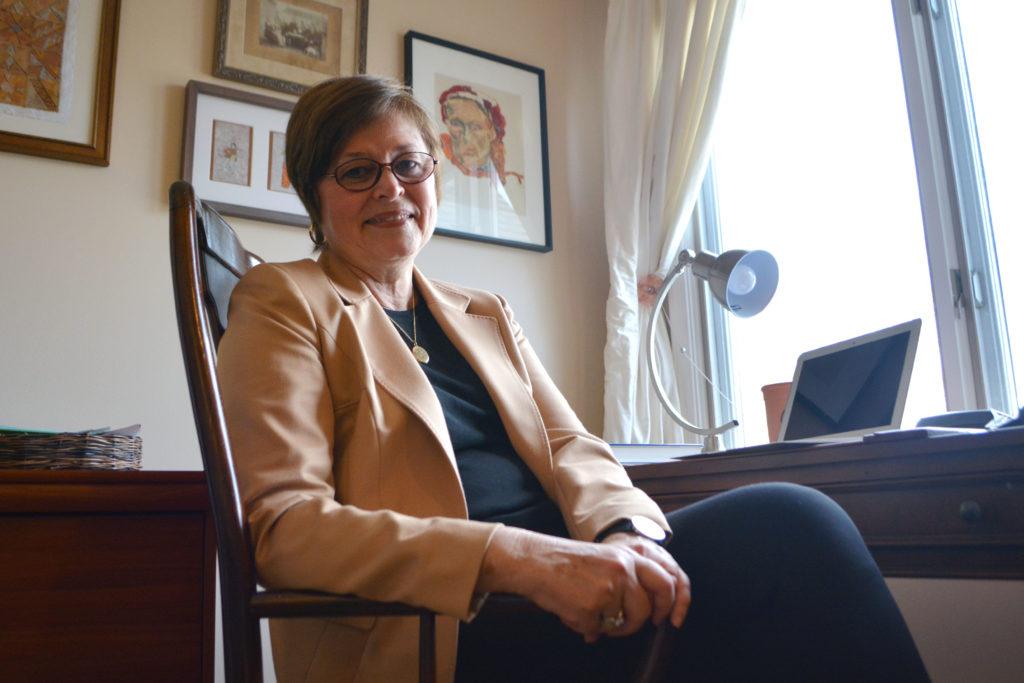The nursing school will host a training session for nurses next month to help them strengthen their interviewing and content-creating skills.
The two-day event, “Media Engagement for Nurses,” will train up to 20 nurses at GW and other universities and clinics on how to both amplify their voices by creating their own media content and talk with reporters about health care topics. Event leaders said the training is the first of its kind for the School of Nursing and follows the nursing school research finding that nurses are underrepresented in the mainstream media.
The workshop, held in the Marvin Center on March 18 and 19, will be led by Diana Mason, a senior policy service professor for the GW Center for Health Policy and Media Engagement, and Barbara Glickstein, the director of communications and media projects at the Center for Health Policy and Media Management in the nursing school, leaders of the event said.
“We do this work because as nurses, we understand that nurses are not taught competencies in talking with journalists,” Mason said.
Mason said nurses often talk to reporters using medical jargon and names of procedures that are difficult for the average person to comprehend in a news story. She said the training will instruct nurses how to deliver information without using medical terminology that a journalist would not be able to effectively describe and instead speak in layman’s terms and break down big-picture concepts.
Mason said nurses attending the event will select one topic to focus on throughout the workshop. She said they will be trained on pitching stories to journalists and talking on camera, writing an opinions piece and drafting letters to the editor.
The trainees will also learn how to use blogs and social media to promote their work treating patients and conducting research as a health care professional, Mason said. She said nurses will come from all over the country to be a part of the training, which is listed on the nursing school’s website and costs participants $800.
The training comes after the nursing school released a study last year on the representation of nurses in the media. The study showed that nurses were only used as sources in news stories 2 percent of the time, down from a similar study in 1997 that found that only 4 percent of quotes or sources came from nurses in leading print national and regional newspapers.
Glickstein, the director of communications and media projects at the Center for Health Policy and Media Management in the nursing school, was a researcher on the study last year and said she has been conducting media training for about 12 years. She said the most recent media study will be included in the workshop’s conversations.
She added that she and Mason will continue to speak about the findings at the workshop and at the International Congress of Nursing in June in Singapore.
“We’ll be reposting on the findings there to an internal nursing community with the hope that in other countries, nurses will begin to look at the news and health reporting and begin to have their voices heard as important members of the health care team to support the health of the public and healthy public policy,” she said.
The recent study also found that health care organizations rarely refer journalists to nurses to use as experts in their stories. The study also found that journalists do not always fully understand the range of a nurse’s role in the medical field.
“Nurses are very infrequently used as sources in the media, and we want to change that,” Glickstein said.
Pamela Jeffries, the dean of the nursing school, declined to comment, deferring to Jean Johnson, a professor of nursing and the former dean of the school.
Johnson said nurses will learn to “effectively craft their message” at the workshop and use social media to promote content. She said nurses will also learn how to build relationships with reporters and teach journalists about the breadth of expertise nurses can provide on topics like patient safety and health care accessibility.
“Nurses are the most trusted profession and work most closely and directly with the patient and their families,” Johnson said. “The important view of nurses should be incorporated into the media. Our challenge is to have nurses knowledgeable about how to do this.”





